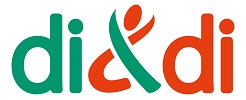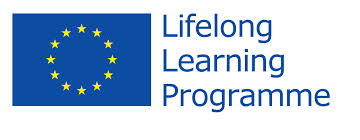Di&Di - 2013-2015


- Scope
- Objectives
- Results
- Experimentation
- European networks
- French networks
- Publications & Presentations
I. Scope
Initiated by iriv together with Enda-Europe, the Di&Di project- enhancing Diversity and struggling against Discrimination gathers 5 European countries: France, Bulgaria, Germany, Italy and Switzerland. It offers a training for graduate youngsters and unqualified women, both sharing a migratory background and a mentoring to professionals working in RH.
II. Objectives
The Di&Di project aims at proposing a tool and strategy for two specific target groups: qualified youngsters with migratory background and low qualified women also with a migratory background. It will propose a tool & mentoring that should allow them to take into account their special needs, to value their route, to define their professional profile on the basis of positive choices (and not being assigned to specific jobs). Albeit their profiles might be different the difficulties on the labour markets are quite similar. The Di & Di project should enhance exchange of experiences between youngsters and women in order for them to build their professional future. The youngsters may transfer knowledge and specific competences; women will transfer their experience and other competences.
The main innovation of the Di & Di project is : to address directly people with a migratory heritage to support them on the labour market focussing on two specific target groups (qualified youngsters and low qualified women); to propose a tailor made training to these special target in order to make them think of a professional future ; identify skills and competences ; open their perspectives for employment or new professional career, with a special view to enhance their creative and spirit of entrepreneurship competences ; to propose a mentoring, a collaborative method meant to enhance the exchange of experiences and competences among two target groups with different profiles (qualified youngsters & low qualified women)
III. Results
- Management and general supervision : led by Enda Europe (leader) and iriv (coordination among the consortium) ;
- Transfer of Innovation–tool : proposing a training to the two target groups on the basis of the Migrapass portfolio & the training “Médiateur interculturel” proposed by iriv , in order to value their skills & competences ; led by iriv ;
- Mentoring : supporting youngsters & women through an approprtiate strategy based upon the Diversité + results (Enda) ; led by Enda Europe
- Experimenting the training and the collaborative method among the two main focus groups identified ; led by Fondation ECAP (CH) & IECOB (Italy)
- Exploiting the results of the Di & Di project among the network of migrants and professionals of migration, employment, local authorities, training and education institutions, people in charge of professional orientation and employment ; led byImmigration & integration ONG (Bulgaria)
- Evaluating the quality of the results and sustainability of the training programme proposed : Bildungsmarkt unternehmensverbund (DE)
- Disseminating the results : led by Enda Europe
IV. Experimentation
Integration of people with a migratory heritage or background is a main issue for many European countries. Since the Treaty of Amsterdam in 1997, migration has become a European competence. As focused by the European Commission in its last report on Migration and Integration (EC, Brussels, 2007), two processes are critical in integration policies in Europe: the elimination of inequalities especially on the labour market and the acquisition of competences. Changing perspectives for people with a migratory heritage in valuing their special profile is a way to enhance equality of chance and to promote diversity on the labour market.
Two target groups are especially vulnerable: youngsters and women. The employment rate of migrant workers is much higher than the nationals’ one. The level of qualification is one criterion: the higher the diploma or qualification, the better chance to find a job. Nevertheless high qualified youngsters are unemployed especially among migrants. There is also a great discrepancy between men and men: female migrants are much more unemployed than male migrants whatever the level of qualification.
The experimentation begins the 1st of October 2014
V. European networks
VI. French networks
Enda Europe
iriv
professionals in charge of Diversity in Human resources departments in Frecnh firms having signed the Chart of Diversity
Cité des Métiers
VII. Publications & Presentations
training programme designed by iriv conseil
mentoring designed by Enda Europe
leaflet in 5 languages (FR, EN, BG, IT and DE)
newsletters (5)- one after each European meeting
websie: www.di-di.eu
weblog Di&Di: www.di-di.fr
← Back






















